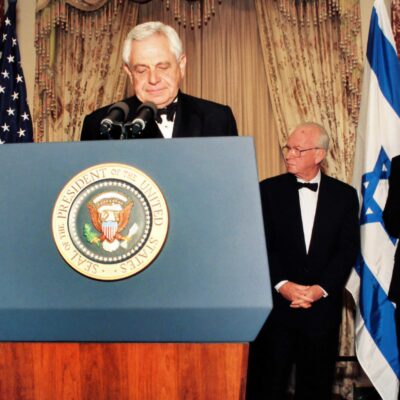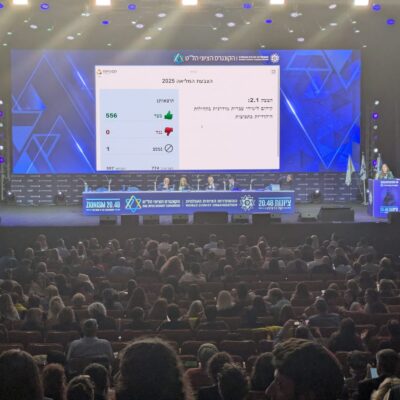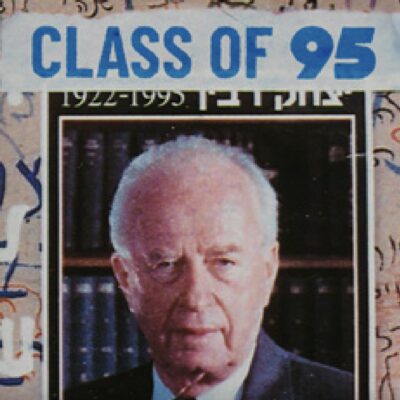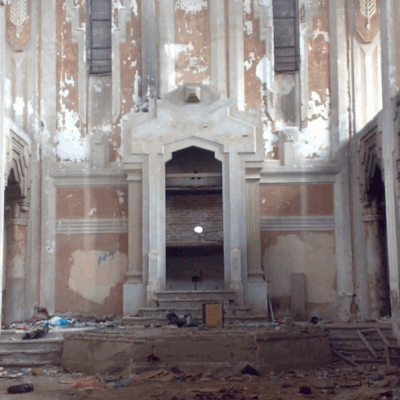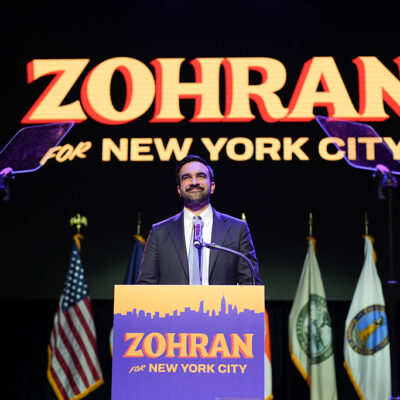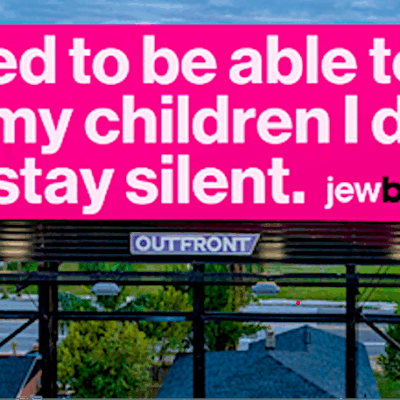Opinion
NAVIGATING COMPLEXITY
Israel education: Meeting the challenges ahead
During the first nine months of 2023, the massive protests for democracy in Israel were a source of pride and hope for many Jews worldwide. These protests were seen as a testament to the resilience of Israeli society and its commitment to democracy. Leading groups of visitors to Israel during this period was inspiring: While showcasing the complexities and nuances of Israeli society, we remained committed to the belief that, at its core, Israel is an honest and just society — an essential source of pride and identity for Jews around the world.
While the first months following Oct. 7 seemed to reinforce this feeling, as masses of Israelis volunteered to support the devastated communities and a sense of mission encompassed all, this is no longer the reality. Israeli society is undergoing rapid and dramatic changes. Grief-stricken, weary and mentally drained, very few Israelis still feel united or return to the streets to protest. The events of Oct. 7 deeply shook Israelis’ very sense of security; many are still mentally and emotionally captured by the trauma of that day. The fundamental Israeli value of mutual responsibility — once defined by the unwavering commitment to bringing back hostages, the wounded and the fallen from the battlefield at any cost — has become a source of intense political division. Very few Israelis today wish to know about the devastation the war has inflicted on the population in Gaza. Israeli ministers are disregarding fundamental legal procedures, openly defying police directives and advancing highly controversial legislation aimed at reshaping the balance of power between government branches.
Since Oct. 7, Israel educators have been grappling with redefining the narrative presented on Israel trips, in camps and in classrooms. By focusing solely on this task, however, we risk overlooking the profound changes that Israel and its people are experiencing — changes that could ultimately overshadow the challenges of shaping a post-Oct. 7 narrative. These changes have such far-reaching implications — shaping not only Israel’s future, but also our ability to craft a narrative that resonates with young Jews and non-Jews worldwide — that focusing on the post-Oct. 7 narrative seems like fighting yesterday’s battle.
If there’s one lesson we’ve learned from Oct. 7, it’s the importance of constantly challenging our assumptions. As Israel educators, staying relevant means embracing timeless Jewish wisdom: hope for the best, but prepare for the worst. How would Israel education look if Israel were to annex the West Bank? What narrative would we adopt if the Knesset passed laws that, directly or indirectly, barred Arab parties from participating in elections? What if elections were postponed or canceled altogether? How would we respond if Israel criminalized the LGBTQ+ community or repealed the Law of Return? What if anti-government protests were outlawed? What will Israel’s claim to fame be if its elite emigrates and its startup industry and investments decline? These are not just hypothetical scenarios; they are critical questions we must confront to ensure our educational approach remains thoughtful, honest and adaptable to an ever-changing reality.
Luckily, our role as Israel educators isn’t to provide all the answers but to ask meaningful questions that spark curiosity and empower learners to explore and engage with Israel. While many may find Israel’s reality increasingly challenging to accept, we have the opportunity to equip learners with the tools to navigate these complexities, turning difficult truths into meaningful and constructive learning experiences.
The five guidelines outlined below have proven effective in navigating high-tension situations where Israeli reality may conflict with participants’ views and expectations. Educators, regardless of their specific context, are encouraged to consider incorporating these approaches when teaching about Israel:
- Recognize the reality gap
Start by acknowledging the significant gap in perspectives between Israelis and the rest of the world when it comes to understanding Israel’s complex reality. Highlighting what concerns, excites, frightens and inspires Israelis provides a powerful tool for placing Israeli reality into a meaningful context.
- Highlight Israel’s unique Jewish nature
Emphasize that Israel is a unique Jewish experiment of self-governance. It is the only place where Jews shape policies for other Jews, live as a majority, and operate a society guided by Jewish values, traditions and identity. Whatever political direction Israel takes, it remains uniquely Jewish. This reality serves as both a litmus test and a catalyst for Jewish identity and fostering connections with the Jewish people.
- Teach through real-world dilemmas
Address difficult questions head-on and actively engage with tough questions and challenging issues through open and honest discussions. Dilemmas are a powerful tool for gaining deeper insight into unfamiliar realities, fostering empathy and understanding complex situations. Use provoking moral dilemmas from Israeli reality to help participants reflect on their own values and perspectives, encouraging them to use critical thinking. Real-life dilemmas are crucial for grounding abstract moral discussions in reality, exploring complexity and gaining a deeper, more nuanced understanding.
- Experience hope and resilience
While discussing Israel’s challenges, highlight innovative and inspiring initiatives. Share stories of grassroots activism, technological breakthroughs, social entrepreneurship and cultural achievements. Integrate volunteering experiences. These will showcase Israel as a dynamic and evolving society where complex realities coexist with determined efforts to create progress and positive change.
- Encourage self-reflection
Use Israel’s realities as a mirror to prompt participants to reflect on their values and choices. Dedicate resources to identifying experiences that spark meaningful questions, ensure adequate time for processing and discussion and train educators to frame and facilitate these conversations effectively.
While we have limited influence over Israel’s reality, we can shape how young people perceive it. Our responsibility is to anticipate future challenges and equip ourselves to address them effectively.
Gilad Peled is a student in the iCenter and George Washington University’s master’s program in Israel education. He is also the editor and co-author of Heartbeats: The Insider’s Guide to Israel.

 Add EJP on Google
Add EJP on Google
